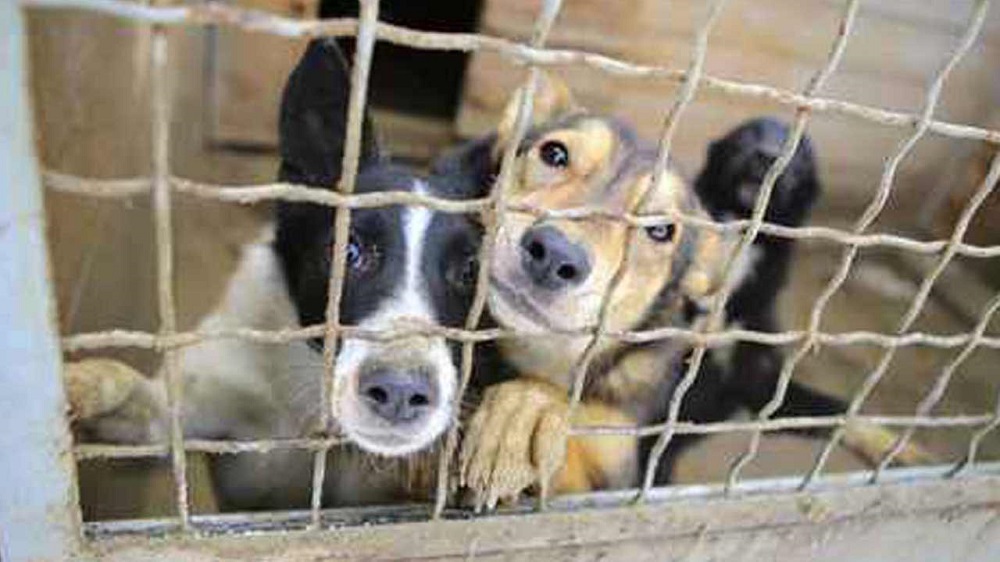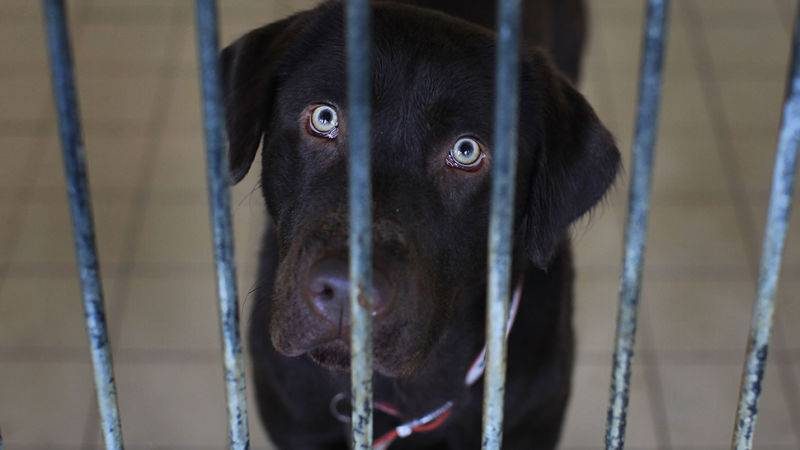
One thing we’re learning from the Donald Trump administration is that when they do something quietly, there’s usually some form of chaos happening in another area. Political watchdog groups and the media are beginning to notice this along with the fact that when enough people speak out about something they’ve done, they often retreat or revise what they did.
One of the big things was after Trump was inaugurated, the White House began scrubbing the website of things like climate change, which caused quite a furor, so they put things back in about that.
Another thing that got scrubbed and had many people scratching their had was when the U.S. Department of Agriculture (USDA) decided to purge tens of thousands of documents regarding animal welfare.
What these documents provided information for people to see if the pet store or breeders they wanted to use had been involved in any acts of animal cruelty. Actually, in seven states, there are laws that require pet stores to know if the animals they are getting are from places that have been convicted or fined for animal cruelty. The USDA site was where they could go to find out this information easily.
In place of the purged information, there was a message that people wanting to get this would have to file a Freedom of Information Act. This made no sense as this made the pet store animal welfare law for those seven states nearly impossible to follow.
This led to the Humane Society of the United States (HSUS) to put the USDA on notice that it intends to legally force the agency to restore all of these items. The two organizations had reached a settlement in 2009, and HSUS was exercising its right to take further action unless the USDA reconsiders its actions.
The animal organization’s letter notes that under the terms of the 2009 settlement, the two parties, HSUS and USDA, now have 30 days to settle their differences. After that, HSUS can ask the court to reopen the lawsuit.
[pdf-embedder url=”https://movietvtechgeeks.com/wp-content/uploads/2017/02/hsus-notice-of-violation-to-usda-animal-welfare-purge.pdf” title=”hsus notice of violation to usda animal welfare purge”]
The HSUS letter also argues that USDA’s actions violate laws governing the electronic release of data under the Freedom of Information Act (FOIA). One of the laws requires agencies to “make available for public inspection … [By] electronic means” all FOIA requests that it releases to anyone and that it determines are likely to be asked for again, by others. When they were public, many of USDA’s inspection reports, especially those of troubled facilities, were accessed repeatedly by a number of different users.
The lawsuit that was settled in 2009 was brought by HSUS in 2005, after USDA refused to release under FOIA annual reports about animals in biomedical research labs. The 2009 settlement stipulated that the agency must promptly and publicly post those reports from 2009 to 2013. It does not address the years after 2013, nor does it address the many other kinds of documents that were scrubbed from USDA’s public database on Friday. For instance, inspection reports of animal facilities were not covered in the settlement.
Wayne Pacelle, president and CEO of HSUS, stated in his blog today that Brian Klippenstein, executive director of a group called Protect the Harvest, is leading the transition team at USDA. The group on its website lists among its objectives informing “America’s consumers, businesses and decision-makers about the threats posed by animal rights groups and anti-farming extremists.”
Some may not recall, but back in 2005, the FBI had placed animal rights groups as the number domestic terrorist threat to the United States. Oh, how times have changed.
According to Science Magazine, these are the reports that were purged from the USDA website:
The reports apply to 7813 facilities that keep animals covered by the law. Roughly 1200 of these are research labs, which are often housed at major academic centers or run by government agencies themselves, including the National Institutes of Health, the Food and Drug Administration, and the Centers for Disease Control and Prevention. Although the act covers animals like dogs and chimpanzees, it does not cover rodents like laboratory mice.
USDA inspectors routinely visit facilities and upload inspection reports like this one to the agency website several months later. Labs, companies, and others covered by the act are also required to file annual censuses like this one cataloging the number and kinds of animals in their care.
Inspection reports contain little, if any, personal information about individuals.
After the public outcry and legal warning from HSUS, the USDA suddenly changed it’s announced page on Tuesday. They are now stating that the removal of the animal welfare records isn’t a final thing.
Below is the revised announcement from the USDA website:
Editor’s Note (Revised Feb. 7, 2017) The review of APHIS’ website has been ongoing, and the agency is striving to balance the need for transparency with rules protecting individual privacy. In 2016, well before the change of Administration, APHIS decided to make adjustments to the posting of regulatory records. In addition, APHIS is currently involved in litigation concerning, among other issues, information posted on the agency’s website. While the agency is vigorously defending against this litigation, in an abundance of caution, the agency is taking additional measures to protect individual privacy. These decisions are not final. Adjustments may be made regarding information appropriate for release and posting.
Courts are continuously issuing decisions that provide agencies with guidance on interpreting and applying laws applicable to the release of information to the public by the Federal government, including the Privacy Act and Freedom of Information Act. In addition, the U.S. Department of Justice maintains comprehensive guidance involving the Privacy Act, Freedom of Information Act, and other laws, and updates such guidance based on legal developments. APHIS, with the support from the Office of the General Counsel, continuously monitors these sources of information and makes refinements to APHIS’ practices, as needed.
Based on our commitment to being transparent, remaining responsive to our stakeholders’ informational needs, and maintaining the privacy rights of individuals, APHIS is implementing actions to remove documents it posts on APHIS’ website involving the Horse Protection Act (HPA) and the Animal Welfare Act (AWA) that contain personal information. These documents include inspection reports, research facility annual reports, regulatory correspondence (such as official warnings), lists of regulated entities, and enforcement records (such as pre-litigation settlement agreements and administrative complaints) that have not received final adjudication. In addition, APHIS will review and redact, as necessary, the lists of licensees and registrants under the AWA, as well as lists of designated qualified persons (DQPs) licensed by USDA-certified horse industry organizations to ensure personal information is not released to the general public.
Those seeking information from APHIS regarding inspection reports, research facility annual reports, regulatory correspondence, and enforcement records should submit Freedom of Information Act requests for that information. Records will be released when authorized and in a manner consistent with the FOIA and Privacy Act. If the same records are frequently requested via the Freedom of Information Act process, APHIS may post the appropriately redacted versions to its website. In addition, some enforcement records (such as initial decision and orders, default decisions, and consent decisions) are available on the USDA’s Office of Administrative Law Judge’s website (https://www.oaljdecisions.dm.usda.gov).
For more information on preparing and submitting Freedom of Information Act requests, please visit https://efoia-pal.usda.gov/palMain.aspx .
The big lesson here for people who don’t agree with everything our new administration is doing is that if you raise your voice (which is your legal right) it can make change happen. Or in this case, make a wrong change into a right one.
The Agriculture Department says “adjustments may be made” in its decision to remove animal welfare inspection reports, enforcement records and other information about the treatment of animals from its website.
The information, including lists of animal welfare violations at commercial dog and horse breeding facilities and animal testing labs, was removed from the department’s website Friday morning. A spokeswoman for USDA’s Animal and Plant Health Inspection Service said Tuesday that the agency is trying to balance the need for transparency with rules protecting individual privacy rights.
“These decisions are not final,” said USDA’s Tanya Espinosa in a statement. “Adjustments may be made regarding information appropriate for release and posting.”
Espinosa said a review of the website has been ongoing and the agency decided to “make adjustments to the posting of regulatory records” in 2016, before President Donald Trump took office. But former President Barack Obama‘s agriculture secretary, Tom Vilsack, appeared not to act on that decision.
Decision by @usda 2 remove animal abuse reports not required. Totally subjective. Same option given 2 past admin. We refused. #transparency
— Matt Herrick (@mattmherrick) February 5, 2017
On Sunday, a former USDA spokesman for Vilsack said on Twitter that the decision to remove the reports was “not required.”
“Same option given 2 past admin. We refused. #transparency,” tweeted Matthew Herrick.
At issue is a long-running dispute between animal rights groups and some animal industry groups, including the horse industry, over documents related to the Animal Welfare Act and the Horse Protection Act. Some in the industry have sued the department to have the records removed from the website, citing personal information.
“APHIS is currently involved in litigation concerning, among other issues, information posted on the agency’s website,” Espinosa said. “While the agency is vigorously defending against this litigation, in an abundance of caution, the agency is taking additional measures to protect individual privacy.”
USDA says the documents will still be available through Freedom of Information Act requests, which can be costly for the general public and sometimes take months or years to obtain.
Animal rights groups immediately criticized the decision, and The Humane Society of the United States says it has taken steps to reopen a settled lawsuit against USDA. The two parties settled a lawsuit in 2009 that required some of the information to be posted.
“You’d think that USDA would want the work of its field personnel to be examined and used by the public,” wrote Wayne Pacelle, the animal rights group’s president and CEO, in a blog post. “But this action suggests a deliberate effort to bury its work and impede efforts to ensure the well-being of animals in numerous sectors. The HSUS will continue to pursue this matter until public access is fully restored.”
One of the top advisers to USDA from the Trump administration has been Brian Klippenstein, who comes from an animal agriculture group called Protect the Harvest. One of that group’s missions is to “inform America’s consumers, businesses and decision-makers about the threats posed by animal rights groups and anti-farming extremists.”
Trump has nominated former Georgia Gov. Sonny Perdue to be agriculture secretary, but he has not yet been confirmed.



